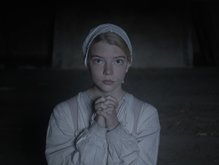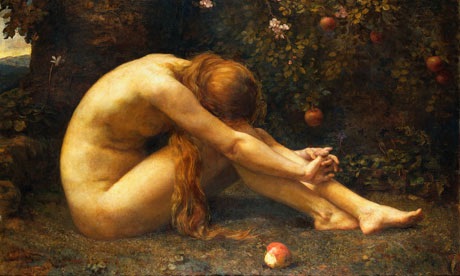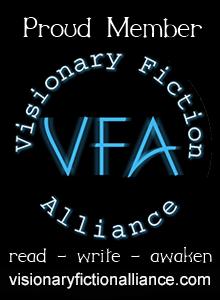|
Mad Max: Fury Road and Apocalypto are two awesome movies. Strangely connected by Mel Gibson. He was the original Mad Max and then he directed Apocalypto. One great feature of both movies is the idea of chase, and flight. In both cases, just about half the movie is chasing/fleeing at high speed. In Apocalypto, the chase is on foot through a jungle, in Mad Max it is with vehicles through a post-apocalyptic wilderness. Both feature religion in fascinating ways. In Apocalypto you get the full force of the Inca religion and then it runs smack into Catholicism, literally. There's a great scene at the end. Here it is. (Stop at the 1:35 mark or go on to the end) In Mad Max, they mix in different religious elements including, Valhalla, the Nordic after life. When the War Boys are about to die, they call out to the others, "Witness Me," and then then go out in a blaze of glory. We get the first taste of this in this following scene. In the film, one of the War Boys is captured by Furiosa and Max who are fleeing their captors. Nux is spared and he joins them and one of the women with him takes to him. The plan is, along with the few others with them, to destroy the sole path through a natural stone arch and return the community and run it differently. But of course, things go wrong and it is clear that Nux is going to die. And so in that moment, in an absolutely fantastic scene, he calls out to the others to witness him. When we think of death, there are two poles. On the one hand, we die alone. No one dies or can die with you or for you. That is the stark reality. On the other hand, we want people to share that death. But only if they want to. So only in a moment, when you are witnessed in death, is the cycle complete in a sense. Just as we're never born alone, when your death is witnessed, you don't die alone.
1 Comment
A poignant scene in The Chronicles of Riddick (one of the most awesomest films ever) has to do with the forced conversion of the people on Helion Prime. This is the scene (an extended scene with footage not seen in the film). "We all began as something else." The Purifier says. Those words always stuck with me because it sounds like this is the human story of religion and culture. We all began as something else. So, is the statement an argument in favor of conservatism or progressivism? Should we fight to conserve and thus resist the command to shed the past so easily, or should we be willing to accept that our anchor is in the future and what we were is not what we are destined to be?
I love the fact that the Purifier answers this later in the film. Here's my blog on his atonement. Arrival, as advertised, is an intelligent first contact sci fi movie. I loved it until the end. They had me at hello and then it said goodbye and I was left very underwhelmed. The film is an account a linguist, Louise Banks, contracted by the government to help communicate with aliens who have arrived in 12 different semi-ovoid ships. Each one in a different area around the world. She helps develop a way to understand their language but is under pressure by the military to answer the big question, "why are you here?" Part of the pressure comes from the fact that China and Russia, to some degree, have adopted a belligerent stance toward the aliens. Which means that an attack on one of the alien ships is a declaration of war between the aliens and humanity. On a personal level, Louise is having "memories" about her daughter who died of an incurable disease and the fact that her husband left her because of their daughter's illness. We later find out that these are not memories but visions and that her husband is the physicist who she works with on this alien project. And I think the big lesson here is that even knowing the future pain, she choosing to marry him. So, what's my issue? I was very much into her personal story as defining who she is and it looked like she was searching her mind for clues to crack the alien linguistic, cultural and behavioral code. I really loved the sci fi with the linguistics lessons and the political layer was a good touch. The problem was that it never all came together for me. The aliens reveal that language is a powerful weapon that will save us? I think that was it. And they gave us the glossary or text book for their language which captures their unique sense of time. That is such a let down. We already know this from Harry Potter! Words are powerful. Further still, we know this from Doctor Who, that words are powerful because they are timeless--the episode in which Shakespeare crafts the perfect words to expel and an evil force from the world. So back to Arrival. Just when the movie called for a very interesting spin on the power of language, they pack up and depart!
Then, to make matters worse, the film pivots exclusively to her realization that her visions of a child and husband are her future with the physicist guy. There is no resolution of anything for me. We don't see how language is powerful nor do we see how her personal story is an analogy or metaphor of the larger issue. So here's my brilliant Director hat going on. First, go with a different approach in the music. I was very underwhelmed by the music the first time she saw the ships from the helicopter. The music went downhill for me from there. Next. Dr. Banks has this convenient ability of being the special person who can dream the future. She happens to call the Chinese General's cell phone at the very last second and repeat his wife's words to him which leads to China standing down. 18 months later, we get world unity. Rather, have China open fire at the ships, which triggers the same reaction from everyone else, so that they damage the alien ships. Then have ships list and appear defunct but clearly somewhat functional. and the aliens likely alive. At this point, Dr. Banks can lead a worldwide movement to recognize the power of our words and the gift of the alien language as well as the gift of a new perception of time. This perception of time, being non linear, means that you can restore the ships to perfect health and this restoration would be done using the power of words--we all sing kumbaya or something. So picture all humans singing and these ships reconstructing themselves off the power of the human song. Then in an twist, the aliens still want to continue meeting with us knowing that our attack on them is a fixture of time and cannot be evaded since time is non-linear. Thus, the past will always occur. Here, then, you can get the same lesson Louise teaches us--chose the beauty of the moment of over the fear of future pain because it is the present that matters. Arrival--it's strengths are the beginning, great acting from Amy Adams, loved the linguistics, loved the bigness of the moment, loved the squid-like aliens, loved Forest Whitaker . . . did not love the end, was not impressed by the music, too much teasing and not enough fulfilling. All in all, definitely a must watch.  "Wouldst thou like the taste of butter . . . wouldst thou like to live deliciously?" This is the climactic scene in the film The Witch (2015) where the eldest daughter of the pilgrim outcast family. Tomasin, demands Black Philip, a goat--also an incarnation of the devil (?), speak to her. All movie long, her younger siblings had claimed that Black Philip speaks to them and told them that Tomasin was the witch, which of course, she wasn't. On the contrary, she seemed to be the sweetest and most grounded of all them all. So embrace of the devil is unexpected and disturbing. The sequence of the interaction is interesting. The devil never initiates or coerces. At each point, the choice is hers. She follows Black Philip into the barn. She "conjures" him to speak to her. He asks what she wants, to which she replies, "What dost thou offer?" Now, here is where Satan makes his pitch. Of all the things that could be offered, of all the things that the mighty Lucifer could present, the first thing he says, "Wouldst thou like the taste of butter?" Fascinating writing. He goes for a very simple sensation, butter, and then extends the offer to a delicious life. One thing missing here is the offer of power. In two biblical scenes, Eve and Jesus' temptation, Jesus is tempted through food. Probably something like "Wouldst thou like the taste of hot, warm, chewy bread?" When Jesus declines the hot, warm, chewy bread, Satan ramps it up and eventually offers power, the kingdoms of this world. In Eve's case, the fruit appealed to the eye and looked good to eat. But the clincher it seems was that it "was desired to make one wise," or be like God--clear offer of power. What was different in the biblical scenes and in The Witch? Many things, but with Eve and Christ, both had a lot to lose. Warm, chewy bread was just not enough to give up obedience to God. For Eve, she had everything she wanted in the Garden of Eden. But Eve and Tomasin are seduced by Satan because in both cases, he offers what is seemingly otherwise unattainable. Tomasin had no where else to go and the offer of a delicious life was far more generous than she could have hoped for. Eve and Adam are an interesting case. They could have been content, but the very presence of God on a daily basis only serve to reveal to them what they were not, regardless of what they did possess. The simplicity of the temptation, butter or a delicious apple, was really a complex symbol representing power, the power to attain the unattainable. With Satan, it's never just butter. "I have done unbelievable things in the name of a faith that was never my own." This is the most powerful scene of the film for me.
The purifier is caught between his original identity and his faith, which is an assumed identity. No one is born a Necromonger, everyone is a forced convert, but a convert nonetheless, in the true sense. They are converted to belief in the Underverse. There is no sense we get in the film that the adherents were anything less than faithful to their faith. But something happens to this purifier and he is burdened by all the atrocities he has committed in the name of his assumed faith. And, in a bid for redemption (as I see it), he allows Riddick the opportunity to kill the Lord Marshall and commits suicide by walking out into the atmosphere of the planet to atone for all the terrible things he has done. So what is a "faith that was never my own"? Is it that he wasn't born into it? Perhaps, but I see it differently. Conversion is the end process of education. After we encounter a new set of ideas or facts about existence, we make choices about the degree to which we adopt these ideas. However, whatever you choose to believe has to be continuous with what you already believe. When a convert hears a message, she recognizes something in that message that resonates and then adopts it because it makes sense at some level. If something makes sense then you can think of it as a lego piece being added to a structure already created. Thus, if someone claims conversion, but the new propositions are not co-extensive with his prior set of beliefs, the dissonance will eventually manifest itself and the conversion or lack of it, is exposed/revealed. True conversion is a process of building continuity. So the purifier has come to terms with his inability to juxtapose his faith in the Underverse, the eschatological hope of the Necros, and his need to for self-justification. In the end, the Underverse is not worth the dissonance. The desire for self-peace or wholeness ultimately wins out. |
AuthorOno Ekeh Archives
June 2020
Categories
All
|

 RSS Feed
RSS Feed

